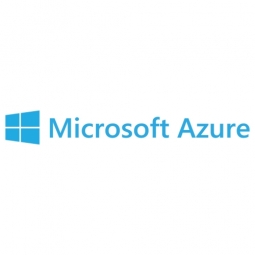Technology Category
- Cybersecurity & Privacy - Security Compliance
Applicable Functions
- Quality Assurance
Use Cases
- Leasing Finance Automation
About The Customer
Additiv is a leading catalyst for change in the financial services industry, helping the world’s biggest financial institutions capitalize on digitalization. The company operates within a highly regulated industry and must uphold the highest standards of security and compliance. Additiv is based in Switzerland and falls under the medium-sized organization category with 50 to 999 employees. The company is committed to offering its clients innovative, flexible solutions that can easily scale and adapt to their specific needs, no matter where they’re located.
The Challenge
Additiv, a leading catalyst for change in the financial services industry, was faced with the challenge of upholding the highest standards of security and compliance while operating within a highly regulated industry. The company decided to move its infrastructure to Azure, but this transition needed to strictly adhere to compliance regulations across multiple locations. The challenge was not only to ensure a seamless transition but also to leverage the benefits of digitalization to offer its clients innovative, flexible solutions that can easily scale and adapt to their specific needs, no matter where they’re located.
The Solution
To address these challenges, Additiv worked with FastTrack for Azure. FastTrack for Azure provided expert guidance to ensure a seamless transition that would strictly adhere to compliance regulations across multiple locations. The solution involved the use of Azure Migrate and the Cloud Adoption Framework for Azure. Azure Migrate helped Additiv to assess and migrate its applications, data, and infrastructure to Azure, while the Cloud Adoption Framework provided best practices, documentation, and tools to help Additiv manage and optimize its cloud adoption journey. This solution enabled Additiv to take advantage of more efficient operations and offer its clients innovative, flexible solutions that can easily scale and adapt to their specific needs.
Operational Impact

Case Study missing?
Start adding your own!
Register with your work email and create a new case study profile for your business.
Related Case Studies.

Case Study
Digital Transformation in Insurance: A Case Study of Menora Mivtachim
Menora Mivtachim, one of Israel's largest pension fund and insurance carriers, was facing a significant challenge due to demographic trends in Israel. The growing rate of retirement planning and services was putting unprecedented pressure on the already strained insurance sector. The pension claims process was bottlenecked with complexities, bureaucracy, and errors. Menora Mivtachim's existing pension process was heavily manual and spreadsheet-based, requiring a team of 10 full-time employees to manage. The process involved gathering applicant information, conducting personal surveys, compiling bank information, and finalizing agreements. To leverage the growing opportunity in the retirement sector and position themselves as innovative insurtech leaders, Menora Mivtachim needed to digitalize their process, streamline the claims experience, and reduce quote times through automated processes.

Case Study
ANZ Bank's Digital Transformation with Nintex Advanced Workflow
ANZ Bank, one of the top 50 banks in the world and the fastest-growing bank in Indonesia, was facing a challenge with its rapidly increasing transaction volume. The bank's existing business processes and workflow were becoming overwhelmed. Like most banks in Indonesia, ANZ was manually handling document submission and verification. Customers filled out paper loan applications and supporting documents, then delivered them to bank branches by mail or courier. Branch officers traveled to the bank’s headquarters or used postal mail, email, and phone calls to submit loan documents for verification. Lost or inaccurate documents created more emails and phone calls. Additionally, ANZ had to adhere to strict verification and financial regulations, including the Foreign Accounts Compliance Act. This act requires that all banks outside the United States provide key information about U.S. clients, including citizenship validation, to the Internal Revenue Service–a complex yet crucial process.

Case Study
Automation in Mining: Unleashing Productivity and Efficiency with 5G
The mining industry, a significant contributor to global economic activity with revenues exceeding USD 500 billion, is facing a challenge of improving efficiency and profitability. The industry is gradually shifting its focus towards automation as the next area of opportunity. Boliden, one of the world's most successful mining companies, operates the Aitik mine, the largest open pit in Europe. The Aitik mine is expanding, and with the increase in production from 36 million metric tons of ore to 45 million metric tons, the amount of rock removed will also increase significantly. However, increasing the number of machines required for rock removal in a busy mine is not a straightforward task. Additionally, every blast creates toxic gases that need to dissipate before humans can enter the area and begin excavation. The challenge lies in improving efficiency, managing the increased production, and ensuring safety in the harsh mining environment.

Case Study
Streamlining Agricultural Automation with Eaton’s Package Solution
Grossi Electric, a full-service electrical contracting company, was tasked with facilitating the hulling, dehydrating, and preparation processes at a walnut processing plant in Waterford, California. The company aimed to explore innovative options for creating cleaner and more efficient control panels that would eliminate the intensive time, labor, and costs associated with excessive point-to-point wiring. As a rapidly growing electrical contracting company, Grossi Electric was also concerned about managing risk and cost while attempting to establish a new and unfamiliar service offering in a mature market for control products. The walnut processing plant presented a prime learning opportunity for the company to discover the best way to build more tailored control panels for its customers. The challenge was to enable a lean automation process that was smarter, simpler, more effective, and of unique advantage for clients.

Case Study
Dell's Transformation: Boosting HR Productivity with RPA and Workday
Dell Technologies, a global tech giant with over 160,000 employees, was grappling with high-volume and repetitive transactional HR processes. The company was seeking to improve efficiency and cost-effectiveness while freeing up HR employees for higher-value, strategic work. The challenge was to eliminate transactional work for end-to-end processes such as open requisition recruiter assignments, onboarding process reminders and status updates, and offer status management. This would allow HR employees to focus more on person-to-person interactions.

Case Study
Overcoming Data Challenges in FinTech: A Case Study
The Covid-19 pandemic has acted as a catalyst for the FinTech sector, accelerating investments and technological progress. However, data and technology remain significant challenges, hindering further progress for FinTechs and their partnering traditional financial institutions. Among FinTechs globally, 81 percent have reported data to be their biggest technical challenge. These data issues are split between leveraging data for AI-ML (faced by 41 percent) and connecting to customer applications and data systems (faced by 40 percent). Other data issues faced by FinTechs include security (40 percent) and deployment in multiple clouds (39 percent). The consequences of these data issues include trouble innovating further due to a lack of clear picture about the type of products and services that customers require and about the businesses themselves. The inability to connect to customer applications directly impacts the user experience and the ability to offer their present products to the wider customer base. These issues also hinder securing partnerships with incumbent banks, and more seriously, regulatory compliance.







